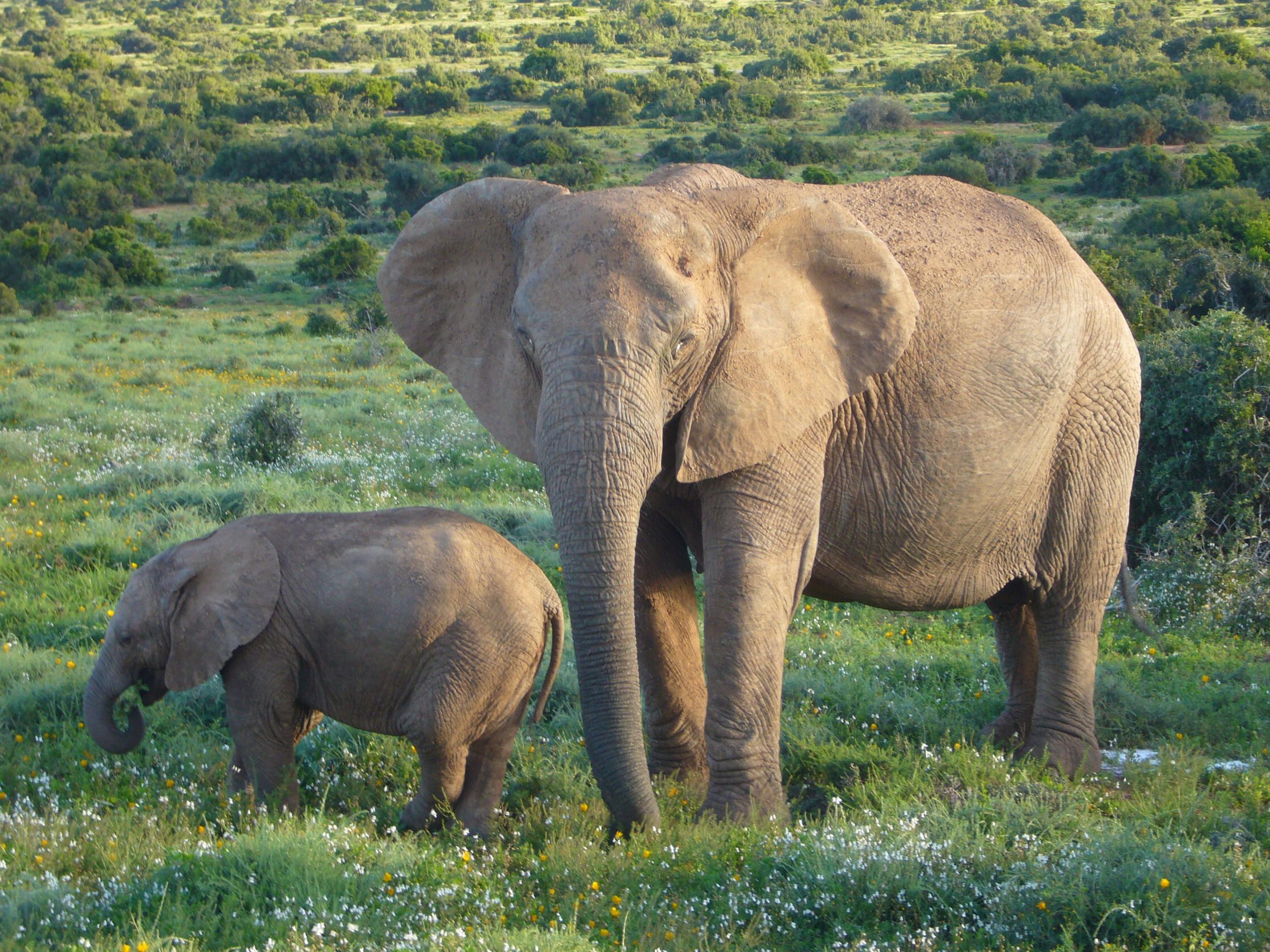Surge in African elephant killings for ivory leads to huge drop in numbers
The rise in poaching over the past decade is the worst Africa has experienced since the 1970s and 1980s

A surge in killing African elephants for ivory has led to the “majestic” animal's numbers falling by more than 100,000 in a decade, conservationists have warned.
The rise in poaching over the past decade is the worst Africa has experienced since the 1970s and 1980s, and is the main driver for the most serious declines in elephant populations in 25 years.
Estimates from a range of sources including aerial surveys and dung counts suggest numbers are 93,000 lower than in 2006, the International Union for Conservation of Nature (IUCN) said.
But because the new figures include elephants from previously uncounted populations, the experts say the true population loss is closer to 111,000 in a decade.
The figures come after the Duke of Cambridge spoke of his fears the African elephant will disappear from the wild due to poaching by the time his daughter Princess Charlotte turns 25.
A report presented to an international conference on protecting wildlife under the Convention on International Trade in Endangered Species (Cites) warned habitat loss also posed a long-term threat to the species.
The findings are based on more than 275 new or updated estimates for individual elephant populations across 37 countries where they are found in sub-Saharan Africa.
Overall there are estimated to be some 415,000 elephants in Africa, although there may be an additional 117,000 to 135,000 in areas which have not been systematically surveyed.
IUCN director general Inger Andersen said: “These new numbers reveal the truly alarming plight of the majestic elephant - one of the world's most intelligent animals and the largest terrestrial mammal alive today.
”It is shocking, but not surprising that poaching has taken such a dramatic toll on this iconic species.
“This report provides further scientific evidence of the need to scale up efforts to combat poaching.”
But she added: “These efforts must not detract from addressing other major and increasingly devastating threats such as habitat loss.”
The new data comes as experts warn the illegal ivory trade shows no signs of decline.
Analysis by wildlife trade monitoring network Traffic said the global trade continued unabated in 2015, with a continuing rising trend in large raw ivory shipments of 100 kilograms or more.
Responding to the Traffic report, WWF's Ginette Hemley said: “It's increasingly clear that despite unprecedented global calls to end elephant poaching, international crime syndicates are still shipping vast amounts of ivory out of Africa.”
She called for efforts to bring down “trafficking kingpins”, close domestic ivory markets and quash consumer demand for ivory, in order to save elephants.
Wounded elephant rescue
Show all 12The IUCN's elephant status report said East Africa's population has halved, mainly due to a 60% decline in numbers in Tanzania.
But elephant numbers have been stable or increasing since 2006 in Uganda, Kenya and Rwanda.
Central Africa's forest elephants have been hit by poaching for ivory since the 1990s, with the Democratic Republic of Congo's once significant population reduced to tiny remnants.
Gabon, Cameroon and Congo's forest elephants have been affected by heavy poaching, while the savannah populations of Chad, Cameroon and the Central African Republic have also been hit.
And Southern Africa is now seeing the emergence of poaching as a threat, with declines in Mozambique and some parts of Zimbabwe, while major populations in Namibia, South Africa and Zimbabwe are stable or increasing, the report said.
On Thursday, William told an audience of campaigners and policymakers at Time For Change - an event organised by the conservation charity Tusk, of which he is a patron - that he was “not prepared to be part of a generation that lets these iconic species disappear from the wild”.
Subscribe to Independent Premium to bookmark this article
Want to bookmark your favourite articles and stories to read or reference later? Start your Independent Premium subscription today.

Join our commenting forum
Join thought-provoking conversations, follow other Independent readers and see their replies